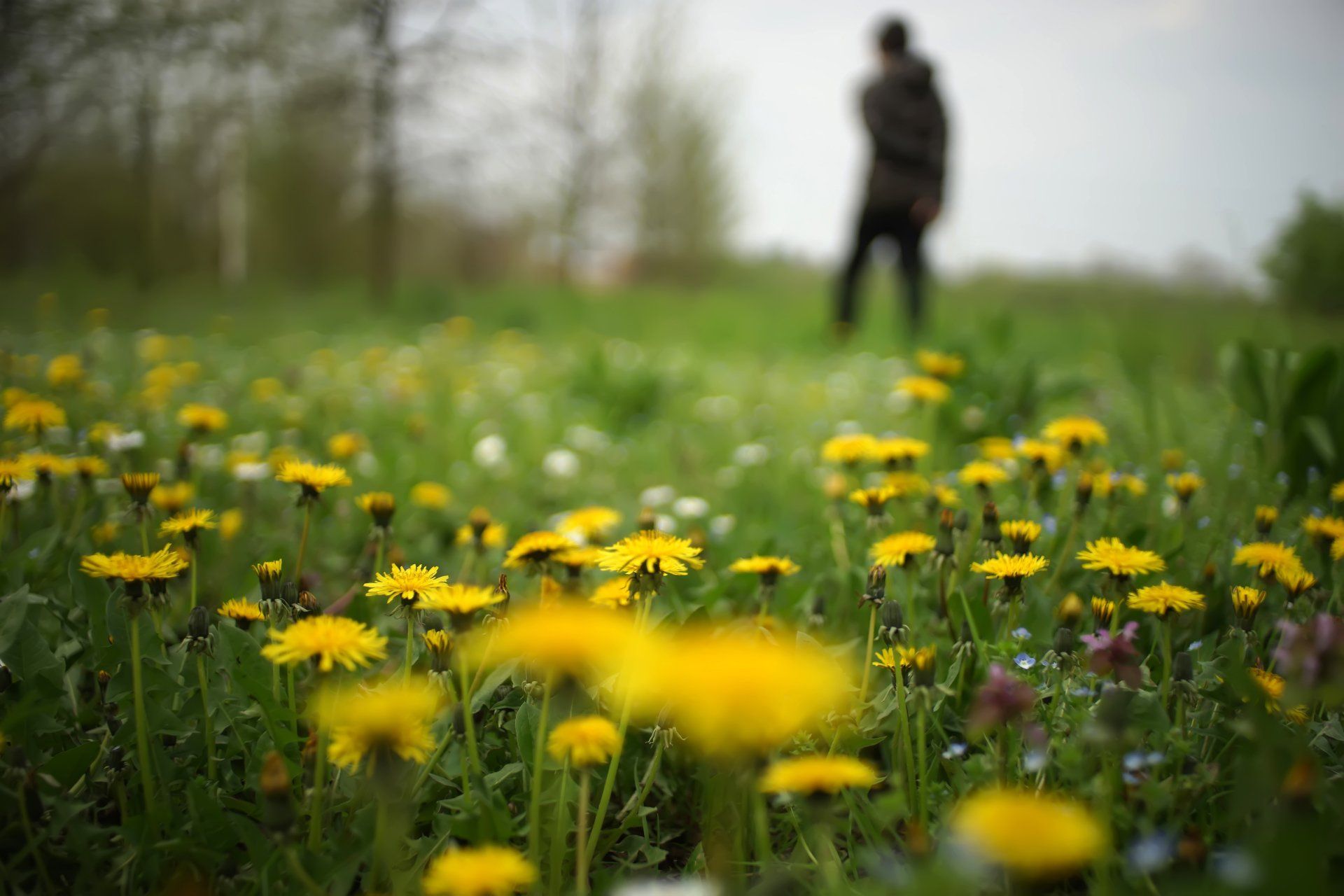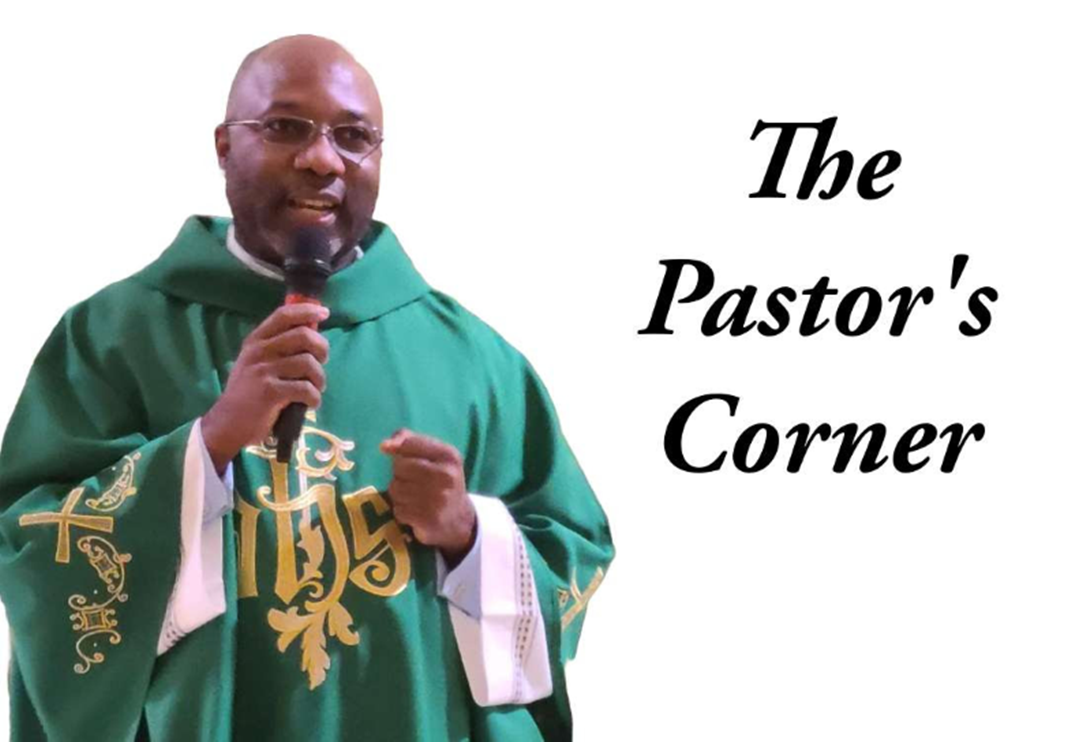When Is A Weed a Weed?
"...that nasty, “vile weed” was useful after all."

Reflection 16th Sunday in Ordinary Time
30 years ago, I became a home owner in this area, the suburbs of Philadelphia. My wife and I bought a small 2-bedroom house with just under a 1⁄4 of an acre of land, much of its rear yard wooded. My first large purchase was a lawn mower, followed quickly by a “weed whacker”. Being new to suburban home ownership I simply cut and whacked my way through that first summer and by the fall it was pretty obvious that I did not know much about maintaining a lawn. Over the following winter, I made it my mission to learn all I could to become the perfect lawn owner. I spent Saturdays, watching PBS shows like the Impatient Gardner and read books on fertilizers, insecticides, and proper watering. I spoke with the lawn care company employees that my neighbor across the street used, to get tips, as I heard he always won the neighborhood’s lawn decorating contest each year. A couple years went by and my lawn looked great and by the third year, I took 2nd place in the contest; not bad for a “city boy”, but I digress.
A year or so after my silver medal win in lawn excellence, the neighbor across the street, who always won, moved out and the new neighbor who moved in, was not as diligent in his lawn care. In fact, he discontinued the lawn service and within a short time dandelions started to appear on the once pristine 1st place lawn. This posed an interesting dilemma for me. On the one hand, with the old neighbor no longer caring for the property, I was poised to be elevated to 1st place status in lawn decorating, however, on the other, I would have to insure that I was not invaded by the dandelion spores that would inevitably be blown across the tiny street and find their way into my near perfect lawn.
Then it happened as if overnight, one evening when I came home from work, I saw the first small yellow flower, but it was just one and nothing to worry about. A few days went by before I noticed again, and now there were patches of yellow flowers in many spots of the lawn and even some of their evil cousins that spawn new ones that are blown by the wind to create even more. As I was doing the lawn care myself, I made sure to have extra of the necessary ingredients should they start to spring up on my weed free property and I was prepared with a mixture of homemade chemicals to eradicate them. So, I went to it. I spot spread my solution, which was utterly effective in eliminating dandelions all over my lawn. I saw the results, within a few hours as the pesky invaders started to wither a slow death. Weeds were going and very quickly; I was fully in charge of the weed problem.
It was the next morning that I realized how the solution was utterly effectively in eliminating all manner of living plants, as it irradiated every blade of pristine grass it came into contact with, leaving me with many dead spots in my otherwise healthy lawn.
Some of the other PBS shows that I started to watch during that time were cooking ones. They were always introducing odd ingredients into dishes, or ordinary things you would never think of. As irony have it, just after the weed incident I detailed above, I was watching one of these programs and the “secret” ingredient that week was, wait for it...dandelions, as if to mock me even further. Apparently, the dandelion, a weed to those of us lawn perfectionists, is used by many as a salad addition and all parts of the flower can be enjoyed. I did vaguely recall my grandfather talking about eating dandelions, but I thought that was just a story. Huh, go figure, that nasty (or to quote Newman from Seinfeld in his distaste for broccoli) “vile weed” was useful after all.
From our Gospel, I think about these two plants, the wheat, and the weed. Both starting out as a seed, both planted in the same soil, both with the same destiny, to grow into a mature plant. Yes, we presume, bases on our preconceived notions, prejudices, foreknowledge, that they will have different purposes. We are told that at the proper time, and we are not sure when that is, the Master, not the workers in the garden, will instruct, the separation of the two types. The Gospel should give us pause to reflect on ourselves as workers in the garden, looking out for the Master’s crop:
- What use does the Master have for each plant?
- Are some of the “weeds” we perceive, perceived as something other by the Master?
- Is it for us to decide?
- Of course, we are workers in the garden but also we are as one of His prized plants. It should have us asking deeper questions:
- Can a weed really be a useful plant?
- What kind of plant are we now?
- Have we changed or are we in need of change (perhaps some spiritual fertilizer) before the
- harvest?
Happy to be in His garden with you!
Deacon Frank Campisi





